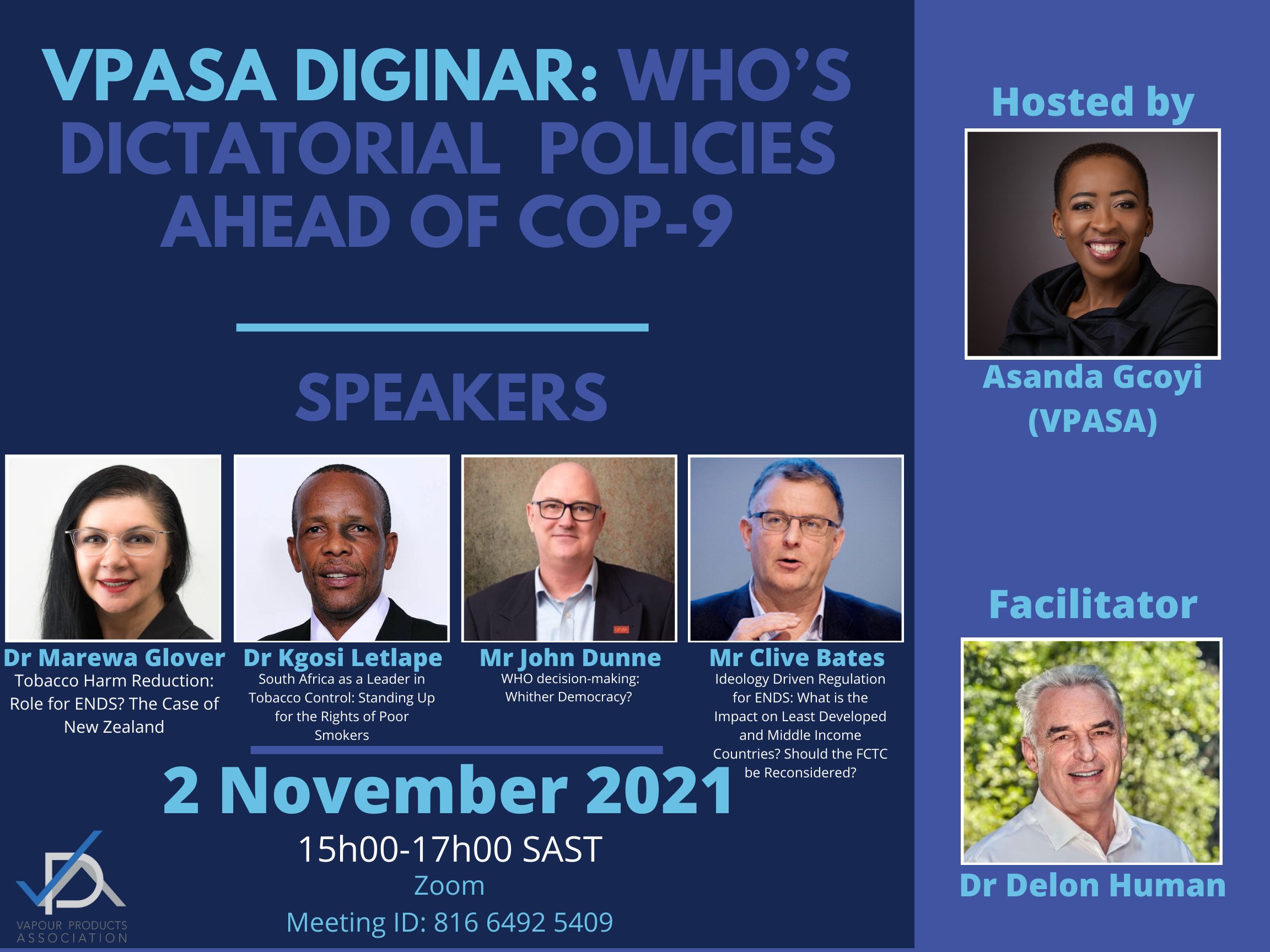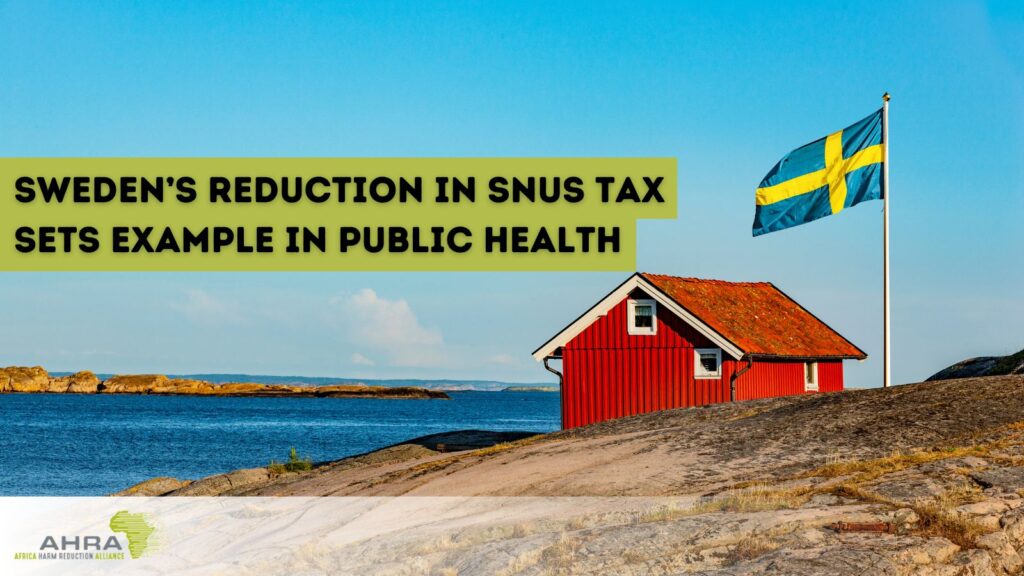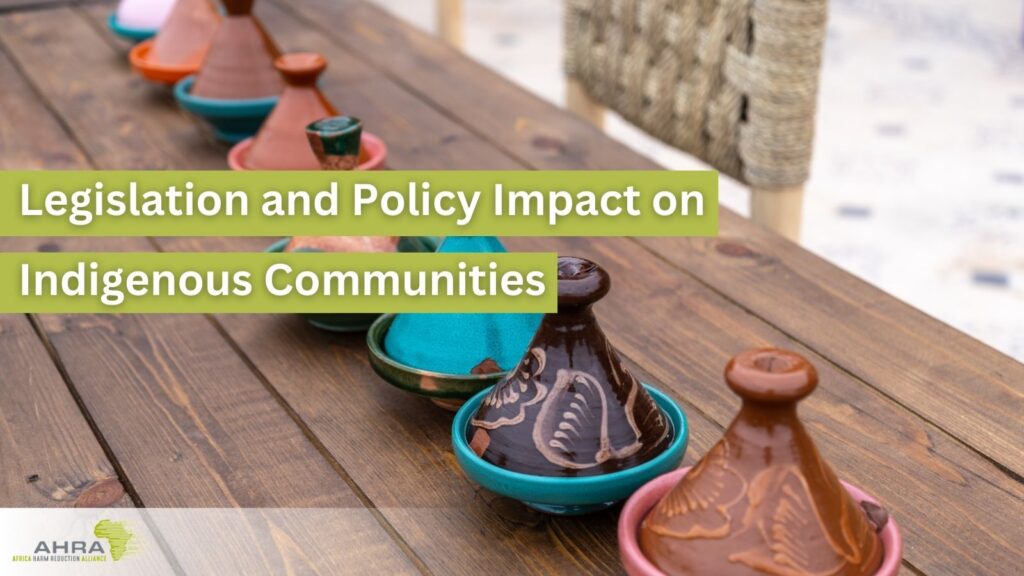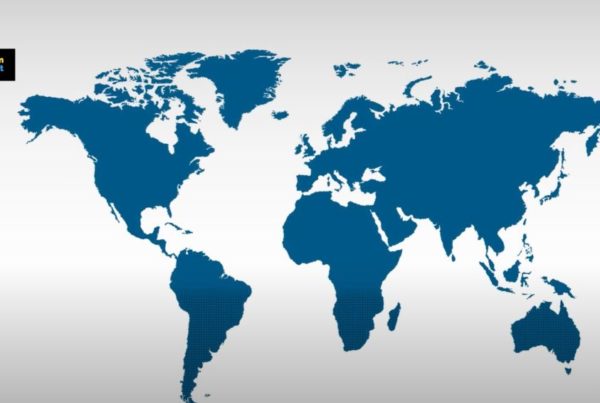One of this quarter’s highlights was a webinar on 2 November hosted by Asanda Gcoyi from Vapour Products Association of South Africa (VPASA).
The webinar was facilitated by AHRA’s CEO Dr Delon Human, and featured a rousing performance from AHRA’s President Dr Kgosi Letlape.
The webinar was entitled: “VPASA Diginar: WHO’s Dictatorial Policies Ahead of COP-9”. It featured an impressive panel of global harm reduction advocates who presented on the following topics:
- Dr Marewa Glover: ‘Role for ENDS? The Case of New Zealand’
- Dr Kgosi Letlape: ‘South Africa Perspective: Standing Up for the Rights of South African Smokers’
- Mr John Dunne: ‘WHO Decision-Making: Whither democracy?
- Mr Clive Bates: ‘Ideology-Driven Regulation for ENDS: What is the Impact on LMICs? Should the FCTC be reconsidered?’
If you missed the diginar, click to watch the full recording.

From AHRA’s perspective, two highlights from our President Dr Letlape’s presentation were:
- Urging the WHO to stop killing smokers by protecting cigarettes from healthy competition with less harmful products
- A plea to African nations not to succumb to groupthink. But rather, to trust in their nations’ capacity to do their own research, and their sovereign right to make their own decisions.
Watch the two short videos below of these two highlights:
Transcript:
“So, I am saying to governments and the WHO: Stop killing smokers by protecting combustible cigarettes from healthy competition with less harmful products, that will reduce harm to those that smoke. I just want to remind everyone that, as a physician, I will always start by saying: If you smoke, quit. If you can’t quit, switch. There’s a duty to everyone to ensure that alternative products are affordable. Particularly to those of us who live in LMICs. Remember that combustible cigarette use is higher amongst the poor, the low-earners, the marginalised, the indigenous communities, the LGBTQI+ community, and people with mental illness. Those are vulnerable communities. So, it is a moral and ethical duty to ensure that not only are the alternatives available, but that they are also affordable.”
Transcript:
“Most of the countries in Africa have relied on the work that is done by other regulators – like the FDA, like what is done in the UK, and the European Union. In terms of those authorities evaluating those products. Why are we being given different advice on tobacco products because of presumed incompetence? And why should our governments buy into the fact that – we can’t think for ourselves, we can’t make up our minds, we have no capacity to do research?! A lot of the research done around the vaccines – some of it is done in South Africa. So, we have the capacity to do research. Now why when it comes to this, we’re told: ‘just be good disciples. Listen to what the lord from Geneva says on these issues. And you must follow’ – I don’t buy into that. Common sense should not escape us.”










